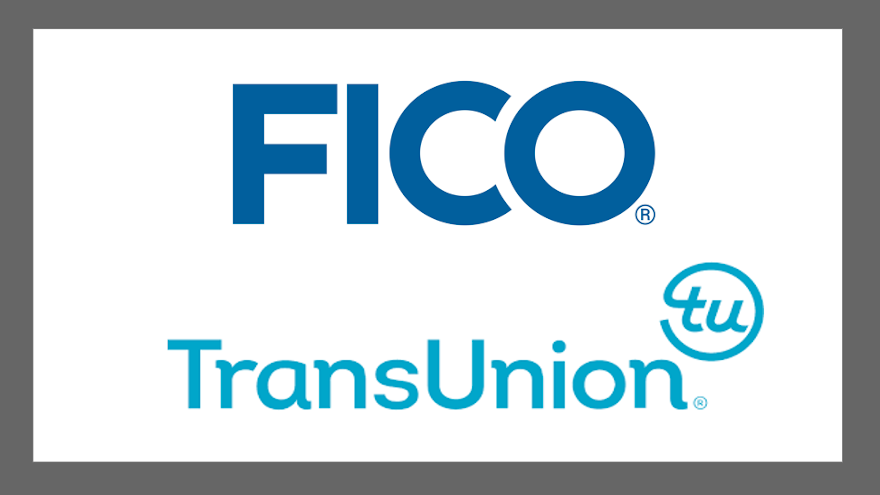In the auto finance world, things are surely changing rapidly. Prices for new- and used-car inventory were finally coming down a bit in late 2022, perhaps bringing more buyers into buy or “just look” during the holiday season.
Axis Auto Finance vice president of national sales Paul Barnes said, “One of the biggest hurdles our dealers faced in 2022 was accessible relevant inventory.”
“Our dealers couldn’t find affordable inventory, there just wasn’t enough of it, and what inventory was available would see multiple suitors, driving the prices up,” he said in an interview with Auto Remarketing Canada.
“Our dealer base has been talking about how difficult it was to find quality used inventory they could retail to their customers,” he said. “Many finance companies have had to adjust their offerings in order to make the more expensive inventory work”
Dealers were pushed to retail vehicles they would have normally sold at the auction.
“Most finance companies still have these adjustments in place in order to best cater to the current market,” Barnes said.
He also noted: “We are now seeing a larger selection of used cars at the auction, and the pricing is starting to normalize.”
As prices fall, dealers are beginning to be able to transfer that shift in price to benefit the consumer.
“Auto dealers are asking lenders to slash interest rates, but the cost of funds has increased all around, so lenders are hesitant to use this strategy,” he said.
When asked about pent up demand due to an inventory shortage, Barnes says that he feels that rising interest rates and affordability will in fact cool demand.
Interest rates have risen more than five times since the beginning of 2022, and vehicles are simply more expensive for consumers than they were in the past, pushing many out the new and even used market.
“Although the cost of vehicles is normalizing, the cost of money is increasing,” Barnes said.
As for the used car market as a whole, it’s an interesting time. Barnes says that most finance companies have planned for times like this and will be fine, but for some, this could be a tough year. This is the same for dealers and groups, 2023 stands to be a test as inflation will challenge affordability and ultimately, vehicle sales.
Many dealers current hold inventory that was purchased in the inflated prices/limited choice market of 2022.
“And to recover their costs, many dealers are still trying to sell the inventory at premium prices. Dealers are trying to avoid losses as the market corrects.” said Barnes
He thinks this is a trend the industry won’t shake until 2024. “When used car prices normalize and the interest rates are accepted, this is when we’ll see a spike in demand.”
But high interest rates will keep it from happening overnight.
“That’s why 2023 is going to be such an interesting year. Customer’s are just a little hesitant due to the volatility of our market.” Barnes said.
In terms of leasing, which often is the lifeblood of used car inventory when leases are up and units are returned, Barnes said “as leasing numbers grow, the promise of clean used inventory also grows. More units available in the used car environment, means less competition and more affordable inventory for end customers.”
With the trade economy, automakers aren’t pushing leading deals in the current market. This is also caused by low inventory, as many were buying out of their existing lease rather than entering a new one.
“Another big concern for lenders in 2023/2024 will be negative equity. As the vehicles that have been purchased during an inflated pricing market are coming back on trade, dealers will need to get comfortable with the 'down payment' conversation. Lenders will be aiming to retain profit, and stick to lending guidelines, so “money down” will be key in this market,” Barnes said.
Keith Murray, chief operating officer a t AutoVerify, cited third-party data from Auto Remarketing Canada that shows leasing as roughly 30% of the market in 2019, and that number dropped to about 20% in 2022.
“I think we’re, we’re going to see inventories starting to return back to normal throughout the year,” Murray said.
He said his company is also seeing a pretty significant push in zero-emission vehicles, which he thinks will likely be attractive in leasing categories.
Michael Rothe, president and CEO of the Canadian Finance & Leasing Association, said he doesn’t expect any significant changes to hit the auto-finance market during 2023.
On the corporate side of the economy, he said, things are going fine, but among consumer, it’s a bit of a different story, with bankruptcies erring on the higher side.
This has the potential to impact the auto industry and therefore mix up auto finance originations as well.
As far as challenges and opportunities in the auto-finance industry go, we continue to see new-vehicle inventory ramping up, “which is a good thing,” according to Rothe, “and might lead to more opportunities on the retail side of things.
“And so far, loan terms have stayed fairly consistent,” Rothe said, albeit likely to increase in 2023.
The association doesn’t expect used-car prices to normalize completely this year. As interest rates are high, as well, Rothe said he expects there to be more cash deals in the books.
We may also see an update in terms of loan lengths as aforementioned, as these terms may see a bit of an uptick to help manage the high price of owning a vehicle in this market.
“You know, these things are cyclical. Things go up and down,” Rothe said.
Murray expects the market is going to see pre-owned vehicles becoming more attractive in the years to come, including many of those that decided they couldn’t afford new vehicles.
“They either bought out their lease or they kept their car longer than they maybe intended to. Now they might be in the market again. So, I do think we’ll see an increase in demand,” Murray said, though he warned high interest rates will continue to apply downward pressure.
“Obviously the overall cost of ownership and the cost of borrowing are going to be impactful for folks that want to finance, but I think for tax season, we’ll absolutely we’ll see an increase in used sales,” he said.
Rothe said he thinks the industry will see a slight overall decrease in sales, contrary to those who believe pent-up demand for expensive new- and used vehicles will drive more consumers into the dealership.
Prices may be easing a bit as used inventory is on the way up, but if you factor in the increased cost of financing in a high-inflation market, this may create a confusing predicament for car shoppers.
The ‘negative equity situation’
Murray at AutoVerify said, “It is definitely an interesting time” for the auto-finance market. First off, the industry is coming off a period of time of very low and record low rates in terms of borrowing, which made borrowing very attractive.
“What we’re seeing now is there’s a prediction that we are going to see a decline in auto-finance fee delinquency, which is something of a phenomenon,” Murray said.
It’s surprising given the high interest rates in Canada, which Murray cautioned might get ever higher as a couple more increases are expected in 2023.
“Given that (high-interest rates), compounding with the inventory shortage (in new and used), no wonder we have seen prices skyrocket for models across the board,” said Murray.
Although prices in the lanes and on the lots are expected to continue to normalize in 2023, Murray has a concern.
Murray said he expects the industry will see more negative equity for vehicles coming in to be traded in or being valued, and we are going to have people realizing once again — their vehicle is worth less than what they owe on it.
“I think that’s going to be a real challenge, and I think that’s going to cause delinquencies to increase in 2023, with loans with higher interest and perhaps longer terms,” said Murray.
Murray contends longer-term loans will largely contribute to the negative equity trend expected to worsen in the future, as the market continues to see more and more customers taking out 72-month to 84-month loans.
With the prices going up so much on new and used vehicles in the past few years, along with high interest rates, monthly fees on vehicle loans are often out of their reach. Many consumers lengthened the loans to bring monthly payments down, often negatively impacting their equity positions later in the loan-term.
“I think we’re going to see that continue; it’s not uncommon to see those extended terms,” said Murray.
Inflation is also causing consumers to seek lower loan monthly payments in order to also be able to budget for food, mortgage payments and more.
“If we can extend that loan period and lower the payment, I think that will certainly be attractive to consumers,” said Murray.
This may be one of the biggest challenges this year in retail, Murray explained — dealing with clients that are “under water” with their vehicle loan.
“I think the biggest challenge is going to be for the dealerships, the auto-finance department, trying to work with customers that are coming in with vehicles that are underwater,” said Murray. “And they owe more than the vehicle is worth … and again, that negative equity gets put forward, getting approval on loans with higher interest rates.”
But it’s not all bad news. These deals will create an opportunity for dealers to acquire those vehicles and to further build out their pre-owned inventory via this alternative source.
Murray also expects the current auto-finance market to create more opportunities for more consistencies and increased automation in the auto-finance market and processes around customer credit, whether it’s the prequalification or building out of a deal.
Murray said that AutoVerify is involved with gathering data and feedback from various industry studies, and this research shows that industry employees across the board expect more automation in the sales process, as well as more steps than ever taking place online or remotely.
“I think that’s another challenge that the ones have to rise to,” said Murray.
“I think we’re going to be focused on standardizing and equalizing again, I think that as the inventory level starts to return back to normal levels or to normal level, the focus on merchandising those vehicles will become more important.”
While recorded earlier this month in Las Vegas during the Vehicle Finance Conference (an event hosted by the American Financial Services Association), this episode of the Auto Remarketing Podcast is focused on the Canadian market.
Senior editor Nick Zulovich connected with Vladimir Kovacevic, who is chief executive officer and founder of Inovatec Systems Corp. Kovacevic discussed the current auto finance market in Canada and how both dealerships and finance companies are leveraging technology to overcome current challenges.
To listen to the conversation, click on the link available below, or visit the Auto Remarketing Podcast page.
Download and subscribe to the Auto Remarketing Podcast on iTunes or on Google Play.
Two major finance industry players in Canada are making sure the foundation for proper underwriting remains sound.
FICO recently announced that it has extended a multi-year agreement with TransUnion of Canada to distribute FICO scores to lenders, consumers and additional businesses in Canada.
The company said through a news release that the renewed agreement continues to make the FICO Score available to the Canadian market for years to come.
“The extension of our distribution agreement ensures that the Canadian market will continue to have access to the benefits of the FICO® Score, one of the most predictive and trusted credit scoring tools for risk management,” Kevin Deveau, vice president and managing director of FICO Canada, said in the news release. “The FICO Score has been core to the lending process in Canada for nearly three decades.”
The company went on to mention this extended agreement drives value for organizations, as accessible data can be used for more informed credit decisions. FICO added that it also helps to educate Canadian consumers to become more informed about their credit and how FICO Scores impact their credit health.
“TransUnion’s comprehensive data coverage and robust product suite will continue to support Canadian consumer broad access to credit and financial empowerments,” TransUnion Canada president Todd Skinner said.
“Through this long-term contract with FICO, we look forward to continuing to service the Canadian credit ecosystem and empowering consumers to achieve their financial potential,” Skinner went on to say.
Canada Drives co-chief executive officer Cody Green joined the Auto Remarketing Podcast to discuss the company's online vehicle shopping and delivery platform expanding into Ontario, future growth plans and more.
Plus, Green shares a bit about the company's platform in the United States, USA Drives.
To hear the conversation, click on the link available below, or visit the Auto Remarketing Podcast page.
Download and subscribe to the Auto Remarketing Podcast on iTunes or on Google Play.
Evidently, the rapid transformation toward online interactions and transactions by dealerships and lenders in Canada is easier said than done — even after a full year of COVID-19 realities.
According to the J.D. Power 2021 Canada Dealer Financing Satisfaction Study released on Thursday, 49% of Canadian dealerships saw an increase in online sales during the past year and 41% expect at least one-fifth of their sales to be digital in the next 12 months.
J.D. Power explained this “tectonic” industry shift requires lenders to adapt rapidly to accommodate dealers’ needs, including building digital platforms and channels to streamline and grow business opportunities.
“While most dealers recognize the many actions taken by lenders to support their businesses during the pandemic, in many instances, less than one-third of lenders executed on initiatives such as increased availability and support from sales reps and credit analysts that drive greater dealer satisfaction,” said Patrick Roosenberg, director of automotive finance at J.D. Power.
“Dealers also say 33% of non-captives and only 15% of captives provided online/digital credit application support/training,” Roosenberg continued in a news release. “Lenders have a lot of room to improve in these areas if they want to protect and grow their business pipeline.”
The study also highlighted the important role sales representatives can and should have in cultivating lenders’ digital business opportunities.
According to the study, J.D. Power discovered dealers are looking to their reps to provide sales and technology training. However, less than 50% of sales reps exceed dealer expectations on this key performance indicator.
As digital opportunities grow, J.D. Power said sales reps and credit analysts need to become subject-matter experts to capture these opportunities.
“With an increasing number of auto sales moving to a full digital transaction model, lenders need to develop and launch digital platforms that enable the process from origination to funding — and be supported by the sales reps and credit analysts,” Roosenberg said.
“Our study shows that a lender who effectively responds to this shift by developing and offering a digital solution is poised for future success,” he went on to say.
Study rankings
After sharing those findings and recommendations, J.D. Power went into how lenders ranked in the latest study.
Hyundai Motor Finance came in highest in the retail captive segment with a score of 901 on a 1,000-point scale. Honda Financial Services (893) ranked second and Ford Credit (889) placed third.
In the retail non-captive segment, TD Auto Finance came in highest for the fourth consecutive year with a score of 917. IA Auto Finance (912) landed second and Scotiabank (901) placed third.
In the lease segment, Honda Financial Services topped the rankings with a score of 912. Kia Motors Finance (906) followed in second and Toyota Financial Services (883) came in third.
The 2021 Canada Dealer Financing Satisfaction Study, now in its 23rd year, captures 7,190 finance provider evaluations across the three segments from new-vehicle dealerships in Canada.
The study was fielded in February.
For more information about the Canada Dealer Financing Satisfaction Study, go to this website.
Axis Auto Finance started the year with more resources to generate originations and at terms more favorable for the technology-driven finance company.
According to a news release distributed last week, Axis announced that it has expanded its senior secured credit facility and lowered its borrowing costs.
Four primary highlights of the development include:
— Expansion of the committed funding capacity to $100 million, up from $80 million
— Lowering of the borrowing costs to prime rate plus 250 basis points
— Increase of the maximum advance rate to 76% from 75%
— Extension through Oct. 31
The company mentioned the facility currently bears interest at 4.95% (prime rate plus 250 basis points) and has a stand-by fee on the unused portion of the maximum committed amount of 25 basis points per annum.
Further information about the company can be found at axisautofinance.com/investors.
Despite the obstacles created by the coronavirus pandemic, Axis Auto Finance recently reported that it set a new record for originations and two other metrics during its 2020 fiscal year that closed on June 30.
The publicly traded subprime automotive finance company said its originations for the 2020 fiscal year came in at $78.7 million, up from $67.2 million booked during the previous fiscal year.
Fueled by the origination growth, Axis reported that its portfolio balance established a new record, closing the fiscal year at $128.3 million in owned and managed assets. That figure is up from $114.7 million.
And Axis highlighted that the 2020 fiscal year also included record revenues as the company generated $37.2 million, surpassing the previous fiscal year’s total of $31.9 million. The company explained that the 16.5% increase over the prior year arrived as the result of “portfolio growth through three quarters of the fiscal year (pre-COVID) and maintaining strong yields on newly originated finance receivables.”
Furthermore, Axis’ portfolio appears to be healthy, too, since the company said its reportable delinquency stood at 4.1% at year-end; what the company called “a multi-year low.”
Like many other firms have been doing, Axis mentioned that it made a 12% year-over-year reduction in operating expenses. The company said that $16.3 million in savings primarily stemmed from the result of efficiencies derived from a new technology platform adopted during the fiscal year.
When taking all of those metrics together, Axis said its adjusted earnings for the 2020 fiscal year came in at $2.6 million compared to a loss of $0.5 million in 2019.
A couple of other notes about its originations. Axis pointed out that $13.3 million were volumes managed for Westlake Financial. That relationship with Westlake was formed during its 2020 fiscal year and has allowed the company to expand its auto-financing product offering.
Effected by dealership closures because of COVID-19, Axis also acknowledged its fourth-quarter originations decreased 75% quarter-over-quarter.
Equifax Canada looked to provide some clarity as auto-finance providers continue to navigate the challenges created by the coronavirus pandemic.
The credit bureau recently released a whitepaper that reviewed credit-based insights for lenders to keep in mind as both dealers and consumers approach what Equifax Canada classified as a “new normal” for the Canadian auto-finance industry. Authors delved into three primary topics, including:
1. Past economic distress scenarios
2. Recent credit-related trends
3. Future of where we may land as a new normal
“As witnessed on a global scale, COVID-19 has struck a blow to many retail industries, arguably amongst one of the hardest hit being the automotive sector,” Equifax Canada wrote in the whitepaper titled, “Canadian Auto Finance Trends: Navigating the New Normal.”
Equifax Canada recapped that after automotive retail sales showed some positivity in January and February (up 0.7% and 2.1% year-over-year respectively), they declined 48% year-over-year in March, dropped an estimated 75% in April and was closed down 44% in May.
For the year, whitepaper authors indicated the Canadian baseline scenario for new-vehicle sales is estimated to decline 25% to 30% while used-vehicle sales are expected to drop but not as severe at about 10%
“Financing of a vehicle is a key part of the automotive cycle and with the onset of the pandemic, many consumers experiencing financial hardship with leases or loans have had options to consider payment deferrals and/or case-by-case reviews of accommodations by their lending institutions,” Equifax Canada said in the whitepaper.
“However, with unemployment expected to swell again to around 16%, 8.3 million Canadians having applied for either employment insurance or Canada Emergency Response Benefit (CERB) as of the end of May and indication of just over 1 in 5 Canadians living in households reporting difficulty meeting financial obligations, delinquencies as a lagging metric, are expected to turn upwards in the coming months,” authors went on to say.
The complete Equifax Canada whitepaper is available on this website.
Fitch Ratings tried to provide some clarity to the Canadian financial market as the nation looked to celebrate Canada Day this week amid the coronavirus pandemic.
The firm said its recent downgrade of Canada’s issuer default rating (IDR) to AA+ Outlook Stable from AAA Outlook Stable will not result in any downgrades to credit card or auto ABS securitizations. Fitch Ratings explained its credit card and auto loan and lease ABS ratings are supported by three elements, including:
— Conservative assumptions and base case loss proxies
— Loss rates that are currently tracking within initial expectations
— Transaction credit enhancement and structural features such as rapid amortization.
Fitch Ratings indicated Canada’s IDR downgrade reflects the deterioration of public finances in 2020 resulting from the coronavirus pandemic.
“Canadian bank ratings are not affected by the sovereign downgrade as it does not apply incremental pressure to bank ratings under Fitch’s Bank Rating Criteria,” analysts said.
The firm pointed out Canada’s highest-rated bank is Royal Bank of Canada, which sits at AA/negative.
Fitch revised the rating outlooks for the seven largest Canadian banks to negative during its April review, “reflecting sensitivity to further deterioration in Fitch’s economic outlook, independent of any potential future rating actions on the sovereign.”
Fitch revised its 2020 asset performance outlook for Canadian credit card and auto loan and lease ABS to negative from stable in mid-April.
“With weekly unemployment filings breaking historical records during March and April and negative GDP forecast for 2020, Fitch expects consumer delinquencies, asset-specific recovery rates and ultimately losses to face pressure in 2020 and lead to weaker ABS performance,” said Fitch analysts, who currently rates seven credit card ABS programs with more than 35 transactions, one auto loan transaction and two auto lease ABS transactions.
“The significant relief for consumers through new government income assistance programs and payment relief offered by several Canadian banks are expected to cushion some of the effects in customer delinquencies and charge-offs in the short term,” analysts continued.
“However, ABS performance is expected to be weaker compared with pre-pandemic levels as many consumers were already financially stretched, with household debt-to-income near record highs prior to the crisis,” analysts went on to say. “Fitch is monitoring transactions for any impact to performance and cash flows from payment deferrals implemented by servicers.”
Fitch pointed out that automotive captive finance companies have offered new payment relief programs during the lockdown, which will lessen the pressure on delinquencies but reduce cash flows in the short term.
In addition to payment deferrals, most captive finance lenders have also offered temporary lease extensions, providing some relief for near-term declines in lease cash flows, according to Fitch
Fitch’s global base case coronavirus scenario assumes a slow recovery starting in the third quarter.
In this scenario, analysts explained credit card portfolio delinquencies and charge-offs are expected to increase and monthly payment rates slow as a greater number of borrowers become unable to make timely or minimum payments.
Fitch added that auto ABS will also experience an increase in delinquencies and lower used vehicle values due to dislocation in the wholesale market and auctions, with the potential to drive credit losses higher in the short term and pressure residual values.
Fitch closed by noting that it has incorporated prior recessionary period loss performance when deriving both credit card and auto ABS losses, “which should buffer ratings against charge-offs/losses anticipated in our base case.”
Analysts concluded by stating, “The risk of negative rating actions will increase under Fitch’s coronavirus downside scenario, which considers a more severe and prolonged period of stress with a halting recovery beginning in second quarter 2021.”
Axis Auto Finance closed the second quarter of its 2020 fiscal year with a pair of records, aided in part by its partnership with Westlake Financial Services and Nowcom Corp. forged last September.
The publicly traded subprime auto finance company reported this week that its quarterly revenues jumped 13% year-over-year to a record $9.2 million. The increase in revenue arrived as the result of portfolio growth and maintaining strong portfolio yields on newly originated finance receivables.
Axis highlighted its total quarterly originations established a new record, coming in at $20.8 million on Dec. 31. The company said $17.7 million of those originations are on its balance sheet and $3.1 million are managed Westlake; the result of penetration with new dealers in both existing and new markets for Axis.
Axis pointed out its portfolio yields in the second quarter 2020 remained strong at 32.6%, in line with both the second quarter of 2019 fiscal year as well as its most recent full-year results, which produced yields of 33.0%.
The company acknowledged its annualized credit losses rose from 9.41% in Q2 of fiscal 2019 to 10.06% in the second quarter of fiscal 2020. Axis noted its delinquency rate at the end of the second quarter of fiscal 2020 stood at 7.73%, in line with 7.37% for the comparative period of fiscal 2019.
All told, Axis said adjusted earnings still produced a gain for Q2 2020 at $0.9 million, compared to a rise $0.4 million in Q2 2019 and $0.5 million loss for its entire 2019 fiscal year.
Axis went on to mention its net income loss for Q2 2020 came in at $0.5 million or $0.005 per share, as compared to $1.1 million loss or $0.012 loss per share in Q2 2019.
The company determined total shareholders' equity (book value) stood at $33.8 million at the end of the second quarter of fiscal 2020, or $0.35 per share. Adjusted equity totaled $41.3 million, or $0.43 per share, according to Axis.












